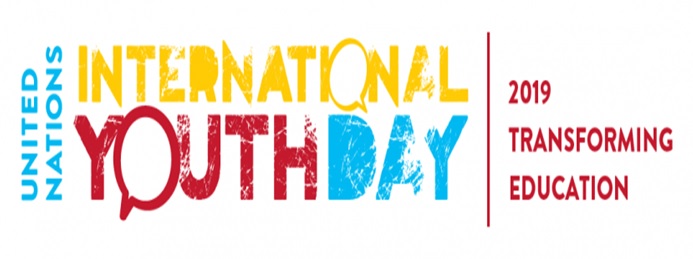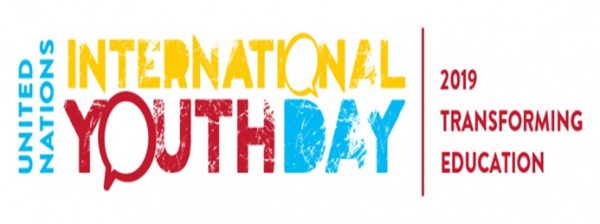The vitality of educating youth globally cannot be underestimated. Youth are the engine room to the growth and development of any nation and play a vital role in socio-economic and political affairs.
Unfortunately, many countries in Sub-Saharan Africa have a large percentage of their young population uneducated. Several West and Central African countries have their youth literacy level below 50%. In a bid to fight this problem, the United Nation has its theme for this year’s International Youth Education Day as Transforming Education.
International Youth Day
In 1999, the United Nations General Assembly in its resolution 54/120 endorsed August 12 as International Youth Day owing to recommendations made by the Conference of Ministers Responsible For Youth (Lisbon, August 8-12, 1998).
Part of recommendations by the Assembly suggest that public information activities be organized to mark the annual celebrations in a bid to create better awareness for the World Programme of Action for Youth, which was adopted in resolution 50/81 of the General Assembly in 1995. Annually, August 12 marks the commemoration of International Youth Day with themes geared toward promoting the cause of young people globally. Members of youth organizations and UN Inter-Agency Networks in youth development also play a vital role in supporting the yearly event. At the headquarters of the UN in New York, programs marking August 12 as commemoration day for young people are equally organized to encourage youth all over the world to create awareness of their situation in their respective countries.
International Youth Day 2019: Transforming Education
Celebrations for International Youth Day 2019 gears towards making education more relevant, equitable, and inclusive for youth globally.
This year’s celebration is part of plans to fulfill the Goal 4 of the 2030 Agenda For Sustainable Development which is to “ensure inclusive and equitable quality education and promote lifelong learning opportunities for all.’’ Thorough examination of efforts by young people, organizations that are youth-led and -focused, and other stakeholders towards transforming education globally in relation to the 2030 Agenda will be carried out to achieve this aim.
Without a doubt, significant transformations are required to ensure education is inclusive and accessible to youth all over the world. Statistics are discouraging for low income countries with only 10% of people completing upper secondary education. Also, 40% of the global population do not get formal education training in their lingua franca or fully understand the language, and over 75% of young people that are of secondary school age are out of school. Further, indigenous youth, disabled youth, young women, and young people who belong to vulnerable groups or found themselves in vulnerable conditions find it extremely difficult to access quality education with respect to their diverse needs and abilities.
Additionally, the globe has a population of people between the ages of 10 and 24 standing at 1.8 billion. This is the largest youth population in history, but it is unfortunate to note that more than half of youth aged 6-14 lack basic reading and mathematics skills despite the fact that most of them are in school. With this, the globe is confronted with a severe learning crisis, and transforming education is a necessity. A framework approach has been developed by the UN to guide this year’s celebration with three key objectives:
- Increased commitment and investment in youth
- Increased youth participation and partnerships
- Increased intercultural understanding among youth
Sources:
Unesco
UN
Featured Images Source: UN


